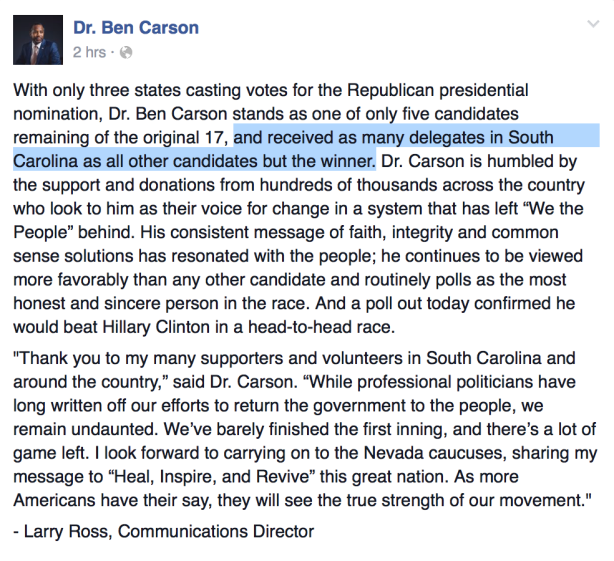Before answering her question, we should probably clear up one thing. She seems to be under the impression that Texas defunded Planned Parenthood clinics only since October 2015. Ergo, the span of four months is not long enough to demonstrate any effect on pregancies since it takes longer than that to make a human baby. Of course, she’s wrong again. Not about gestation, but about when Planned Parenthood clinics began to lose funding in Texas.
You see, Amazona? It was 2011, not October 2015. And some folks have actually studied the situation, as opposed to making up suppositions off the top of their heads to support their ideology. You should try it sometime.
Since Texas slashed funding to Planned Parenthood in 2011, more than half the state’s abortion clinics have shuttered — and data show births among poor women have surged.
Researchers looked at fertility trends among women who qualified for birth control through the state’s public family planning programs in the two years before and after Texas lawmakers booted Planned Parenthood from its payroll. Each woman lived in a county that lost a Planned Parenthood clinic and had, at some point, received an injectable contraceptive from an affiliate before it closed.
The group’s birth rate shot up.
Between 2011 and 2014, the number of these births, covered by Medicaid, climbed 27 percent, according to a new study in the New England Journal of Medicine. (Medicaid coverage for healthy pregnancies — prenatal care, labor and delivery — typically costs at least $8,000 per baby.)
The birth increase coincided with a 36-percent drop in claims for long-acting contraceptives, including implants and intrauterine devices — meaning significantly fewer women started using what gynecologists consider the most effective form of birth control. Claims for injectable contraceptives fell 31 percent. No significant change emerged in women obtaining birth control pills and contraceptive rings.
Joseph Potter, an economist at the University of Texas at Austin who co-authored the study, said there’s no way to prove the Planned Parenthood closures sparked a baby boom.
Perhaps more women simply decided, at higher-than-previous rates, to have babies. Or perhaps they couldn’t find or fund another contraceptive shot, which need to be taken every three months to stay effective. Perhaps they simply lost access to reliable birth control, in general.
“You’ve got a very strong signal that there was an impact of [the Texas exclusion of Planned Parenthood],” Potter said. “The thing about this study, it more or less contradicts the claim you can’t implement that policy at no cost, without hurting people.”
The study, which comes as the national debate over abortion rages on and Planned Parenthood stays firmly in the spotlight, received funding from the Susan T. Buffett Foundation, a Planned Parenthood supporter. Potter said the foundation wasn’t involved in the research and did not ask to see the study.
In 2011, Texas became the first state to block funding to Planned Parenthood, cutting its family-planning funds by 66 percent and redirecting the rest to general health-care providers. After excluding Planned Parenthood, a qualified provider under federal law, the state lost all federal funding for its women’s health program. The new, entirely state-run Texas Women’s Health Program bars funds from clinics that offer abortions.
In 2013, former Gov. Rick Perry pushed harder to quash abortion access in Texas, signing a law requiring all providers to meet ambulatory surgical center standards and physicians to have admitting privileges at a local hospital. The move delivered another financial blow to women’s health clinics across the state, forcing many to close their doors. From 2012 to 2014, the number of abortion providers in Texas shrank from 42 to 18.
“To be clear, my goal, and the goal of many of those joining me here today, is to make abortion, at any stage, a thing of the past,” Perry said of the policy.
Proponents of the regulations under House Bill 2 say they wanted to protect women’s health. Abortion rights supporters, however, say the mandates are unnecessary, expensive and an “undue burden” on women’s rights. Some Texas women now have to drive 250 miles to get the procedure.
The Supreme Court is slated to review the law this year, with a hearing scheduled for March.
The trend Texas started carries national implications, Potter said. Alabama, Arkansas, New Hampshire, North Carolina, Louisiana and Utah have also taken steps to block public money from Planned Parenthood clinics. Ohio is now considering similar action.
The Congressional Budget Office said in a report last year that cutting off Planned Parenthood from federal money would increase public spending by an estimated $130 million over 10 years. The clinics serve more than 40 percent of women who receive birth control from safety-net providers in 18 states, according to the Guttmacher Institute, a nonprofit reproductive health advocacy organization, and more than half of such women in 11 states.
The CBO, a nonpartisan watchdog, asserted that defunding Planned Parenthood, which counts roughly 2.6 million women as clients, would lead to more unplanned births as patients lost access to birth control.
Though Republicans in Texas and across the country have long spoken out against Planned Parenthood, their efforts to defund the organization found new energy last year after anti-abortion activists released video of Planned Parenthood employees discussing the cost of donating fetal tissue.
David Daleiden, the filmmaker behind the videos, claimed the organization was selling fetal tissue for profit – a charge the organization has denied.
Eleven states opened investigations into Planned Parenthood. None found evidence of wrongdoing – and last week, in a surprise move, a Texas grand jury indicted Daleiden on felony charges related to creating a fake ID and trying to buy human tissue. He turned himself over to authorities on Thursday.
